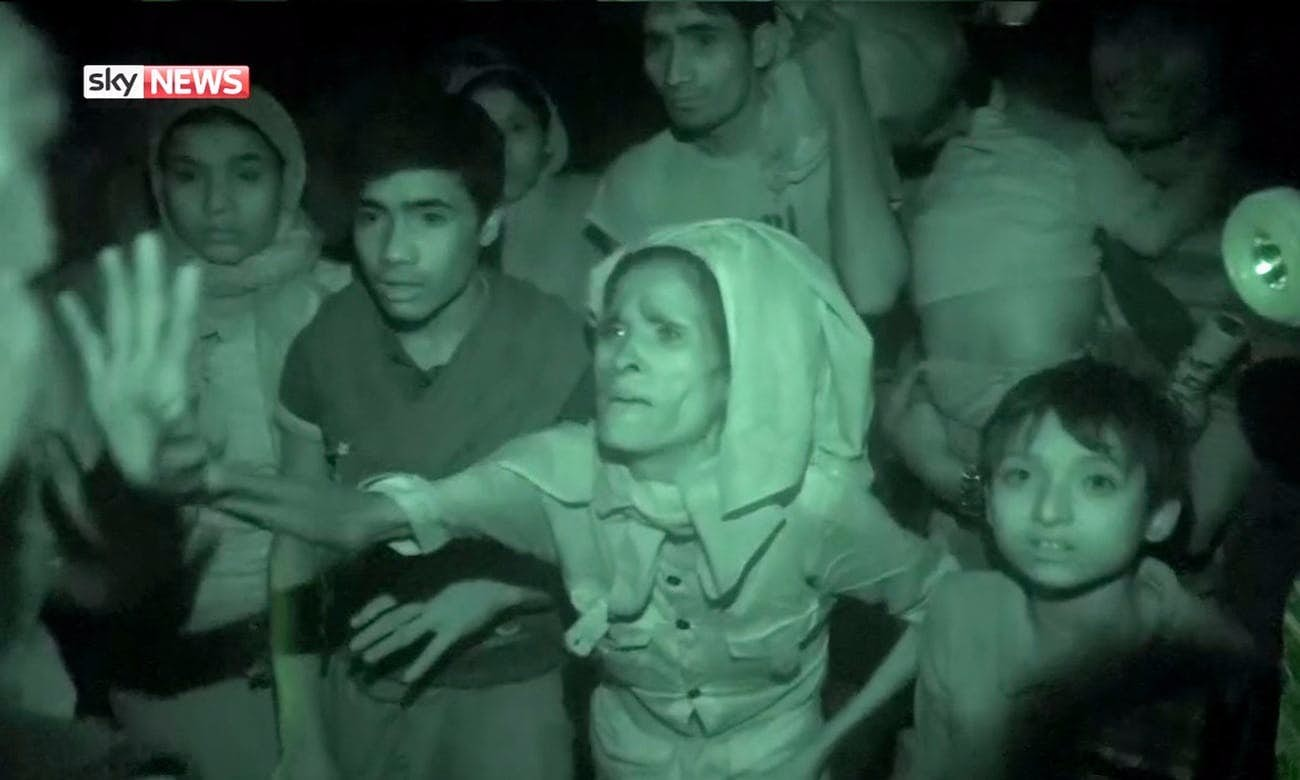It’s the sound of the wailing that is most haunting. It’s a deep, soulful, pit-of-your-being, howling hurt. And it follows us as we’re swept along by this moving, wretched mass of humanity. These are the Rohingya Muslims who are unable to flee the violence being unleashed against them by travelling overland to Bangladesh because of the distances involved; the certainty of running into Myanmar soldiers and having to navigate landmines. They’ve run in the only other direction they could – towards the beaches of Maungdaw district in Rakhine state, until they reached water and could go no further.
We’ve travelled in a traditional Bangladeshi fishing boat to Dang Khali Saur beach, now home to what’s believed to be the largest number of stranded Rohingya in Rakhine. Here, the bulk of the atrocities by the Myanmar military have been taking place.
We wade through the shallows from the boat and are met by a group standing knee-deep in water. At the front, being held up by a young man, is a small, frail woman, with hollowed out cheeks and sunken eyes. I grasp her upper arm to steady her as she wobbles and her thin frame takes my breath away. I can encircle her entire upper arm by touching my thumb with my forefinger. We follow the crowd along the beach. It’s slow progress because of the sheer numbers. Men are crying openly. A woman walking behind me sobs continuously: big, helpless gulps of despair.
Read the full article here.
